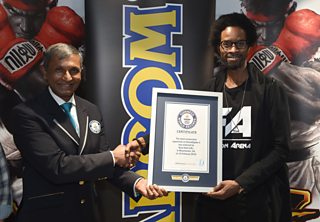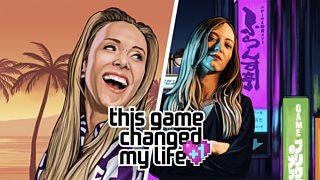I escaped Syria in an oil barrel - and made a video game about it
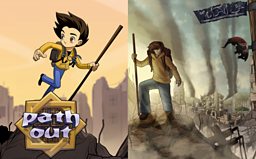
War games
Abdullah Karam’s mother bought him his first games console, a Playstation, when he was a young teenager. She figured it was better for him to be inside playing video games than outside getting killed.
it was better for him to be inside playing video games than outside getting killed
In This Game Changed My Life, Abdullah tells Aoife Wilson and Julia Hardy how he grew up in Hama, Syria, in the ‘00s, in the early days of the presidency of Bashar al-Assad. Under Assad’s strict regime, the streets were not a safe place. Even thinking in any way negatively about the government put you at risk of arrest.
“When it comes to politics, you’re not really allowed to have any kind of thinking about it, otherwise you’ll go to jail,” says Abdullah. “You have one president, one party, and that’s it.” Even at home, Abdullah’s family would not express any feelings out loud: “The walls can listen to you. Big brother is watching.”
With a terrifying world outside, Abdullah retreated into video games – Command & Conquer: Generals; Grant Theft Auto: San Andreas; Need For Speed – and dreamt that one day he might make games of his own.
But it was a world that seemed unreachable. There were far bigger concerns.
In 2011, the Arab Spring saw Syrians rise up against the government, beginning the still ongoing Syrian civil war. During the uprising, Abdullah’s brother, who was outspoken against the government, fled to Turkey, to avoid almost certain death. Abdullah would follow him shortly after.
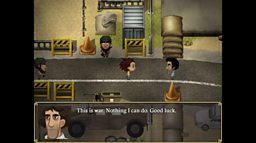
Fight or flight
Abdullah admits that he put a lot of hours into his Xbox, but not so many into his studies.
In Syria, if your grades were low enough that you weren’t admitted to college, you would be sent to join the military, for an indefinite amount of time. When it became clear this would be Abdullah’s fate, his mother insisted he flee the country and flee to the relative safety of Turkey.
“[She said], it’s either kill or be killed and we did not raise you to kill anyone. We would rather you be dead on a journey than be killed on a fighting scene”.
Abdullah’s escape from Syria, however, did almost kill him.
He had to cross multiple checkpoints, guarded by multiple factions in the war, rebel and loyalist. Giving the wrong answer at any time, or even being dressed or groomed incorrectly, could have cost him his life.
To cross the border into Turkey he had to put his life in the hands of smugglers. They sealed him in a barrel half-filled with crude oil, tied it to a long rope and dragged it through a river onto Turkish soil.
βWe live as human beings or we donβt live at allβ
But in Turkey his troubles weren’t over.
a woman had given birth on the collapsing boat, surrounded by dozens of strangers, right next to Abdullah
He found himself being used essentially as slave-labour in restaurants and cafes, with little-to-no human rights. He heard news of the better lives refugees were living in Northern Europe.
“We reached the idea,” says Abdullah, “it’s either: we live as human beings and we get what we deserve, or we don’t live at all.”
The safest route was to pay another smuggler take him on a dinghy from the Turkish coast to Greece with other refugees. But the journey was perilous. Although they were promised a crew, the passengers had to pilot the boat themselves. The dinghy was so overloaded with people it partially collapsed halfway across the Mediterranean, forcing many passengers into the sea, where they had to cling onto the sides for dear life.
After several hours they arrived, shaken, in Greece, but with one more passenger than they had set out with; a woman had given birth on the collapsing boat, surrounded by dozens of strangers, right next to Abdullah.
Then, after a dangerous journey through mainland Europe, most of which he is unwilling to describe for his own safety, Abdullah arrived in Austria.
Finding home
In Austria, Abdullah’s life finally turned around.
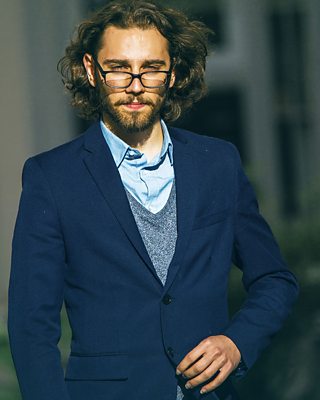
By pure chance – at a staging of the (incredibly named) theatre show Frankenstein: A Robot Musical – Abdullah met an actress who introduced him to her husband, Georg, who ran a video game company called Causa Creations. Abdullah told Georg that he’d always wanted to make a video game, and they hit it off immediately. Georg invited Abdullah to come and shadow his work in their office, and after several months of interning, Georg suggested Abdullah help make a game based on his experiences as a refugee.
The game, Path Out, is an autobiographical RPG that puts the player in Abdullah’s shoes as he goes through his terrifying flight from Syria.
Abdullah was expecting little from the game, other than a sense of catharsis, but Path Out turned into a significant hit, winning awards and universal acclaim.
“The reactions were incredibly good,” says Georg, “96% positive.” After years of living in fear, Abdullah finally realised his dream of making his own games, and found a place where he could feel safe.
“This game changed my life,” he says. “Every time I see someone playing it, I reflect to the old life I had. … Now I have my dream job; I have my dream girlfriend… and it feels like home.”
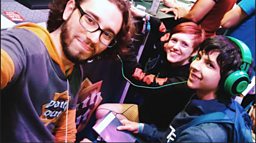
-
![]()
How I went from homelessness to world champion
Hear how Ryan Hart went from sleeping rough in London to breaking records in Tokyo - and beyond.
-
![]()
Hear every episode of This Game Changed My Life
Aoife Wilson and Julia Hardy find the most shocking, moving and inspiring true stories about how gaming changed peopleβs lives forever. New episodes every Thursday.
